Be Someone’s Vitamin: How Kindness Can Save Us
BE SOMEONE’S VITAMIN: HOW KINDNESS CAN SAVE US (ISSUE 154) NOVEMBER 11, 2014
By Diane Gold
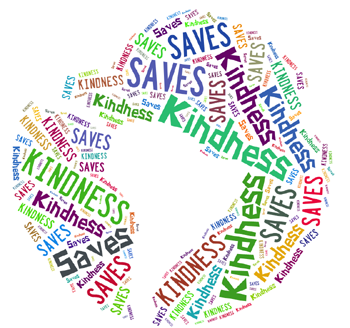 Be someone’s vitamin and let kindness save us from our every day habit of rushing. What if we spared one minute for someone else? And what if we started to do this on a daily basis?
Be someone’s vitamin and let kindness save us from our every day habit of rushing. What if we spared one minute for someone else? And what if we started to do this on a daily basis?
We are all in the habit of racing here, running there. We don’t have time now because we are working, creating, inflating our egos, deflating someone else’s, filling our pockets, filling our minds with study and research, investigating, gathering, expanding, saying our last goodbye, saying our first hello.
There’s always something going on. We are fortunate to have so many choices.
What if we decided to spare one minute on a regular basis to show kindness to someone? If asked to do it, most of us would say,
“Of course. Yes. Count me in,”
when it is put that way. However, before the kindness elf comes to our doorstep and asks us to show kindness, we are off in our whirlwind world. We would not think of interrupting our daily rush for any such thing. Add another thing to our daily grind?
“Not a chance. Impossible. Couldn’t manage it,”
we might say, when it’s put that way.
THE TWO-WAY DIFFERENCE
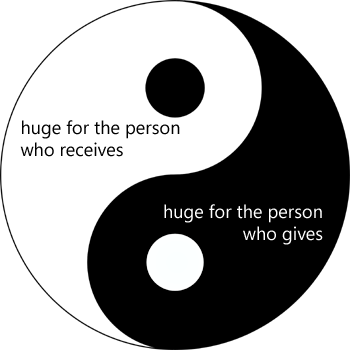 Let’s look from a different perspective. What if we needed someone’s time that would mean the difference between life and death: help making a decision about how worthwhile our life was or help deciding whether or not to leave on a round-the-world cruise when the seasick medicine didn’t work from the start or help evaluating a crucial decision in the life of our child.
Let’s look from a different perspective. What if we needed someone’s time that would mean the difference between life and death: help making a decision about how worthwhile our life was or help deciding whether or not to leave on a round-the-world cruise when the seasick medicine didn’t work from the start or help evaluating a crucial decision in the life of our child.
I don’t mean to be dramatic, but taking one minute of time out for kindness can make a difference, in both directions, that is, huge for the person who receives (and needs the minute to receive some type of support) and huge for the person who gives (and can use the minute for personal balance while supplying an offering).
GOOD FORTUNE
So many of us who are reading this now have been dealt a good hand in life. We can read, we have internet connectivity (or a friend who printed this out), and we are choosing to read information that is thought-provoking, opinion-stimulating and delivers info on socially justice.
So, let’s use our good fortune in a way that helps someone other than ourselves.
WHAT’S IN IT FOR ME?
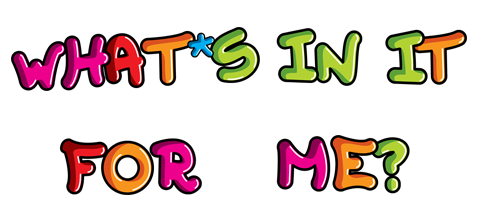 As with so many things, we ask what the personal benefit is. It’s nice that we can use the standard, if not overused, buzzwords,
As with so many things, we ask what the personal benefit is. It’s nice that we can use the standard, if not overused, buzzwords,
“I’m giving back. I’m paying it forward.”
But the big picture shows that we are more highly motivated to act if there is some benefit to our sphere of influence – such as our family, friends, our projects and ourselves, rather than just knowing that we gave. The feeling of giving is superb, no matter to whom we give. But the inspiration necessary for us to actually take the kind act in the first place is often tied to the personal benefit that results from what’s in it for me.
So, what is in it for me? And what did I mean by the idea that the giver gets?
The answer to this really boils down to how open we choose to be. At the starting line, when we are about to be a giver; we might think,
“OK, here I go giving. I couldn’t possibly get anything out of this other than good public image points for my business, a merit plaque to feel good about and personal satisfaction.”
Now, each of these benefits is enough, on its own, to drive someone to give:
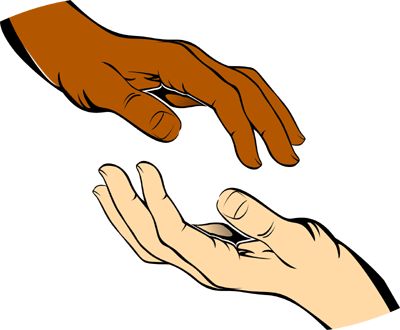 When we are doing the act of giving, we have slowed down and stopped our rushing.
When we are doing the act of giving, we have slowed down and stopped our rushing.
We are giving, at least, one moment’s thought to the beneficiary of our gift of kindness.
Chances are we are taking another moment out to realize our good fortune.
These small moments of reflection – where we stop the rushing – are enough to balance our heart rate, our blood and our daily routine.
When we are the recipient of a kindness, not only do we receive something; we also take a moment out to be grateful. This moment is of tremendous benefit and allows for similar body balancing as in the giver.
HOW TO SHOW KINDNESS
So, let’s drill down about various ways to show kindness. There is never a shortage of need. Here are some things we can do to begin.
1) REFRAIN FROM SHOWING DISDAIN TO SOMEONE OF LESS FORTUNE.
How many times have we laughed to ourselves or supported someone else’s joke about a “have not” (a person who does not have possessions) sleeping outside or someone’s driving a less than shiny, new car? It’s not that we might be in those shoes one day that is a reason to refrain; it’s about being kind. Of course, we could become jobless, with no supportive family, no possessions, no access to money, in a heartbeat. This is not the point. The point is to cultivate the difference between right and wrong. Kindness is right. Meanness is wrong. Also, there are some scientifically measured studies that say that the universe has a consciousness that can be positively affected by being kind.
2) BE SOMEONE’S VITAMIN.
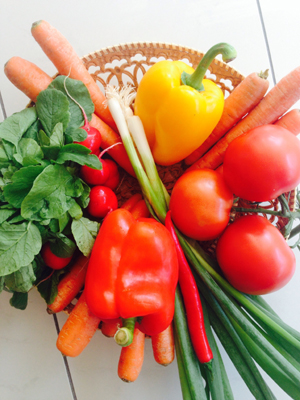 Take the time to say hello to someone who lives outside or who looks unhappy and could use a smile. This nourishes like a vitamin. I would suggest doing this in public during daylight hours, so there is no chance you will become a victim for your kindness. Many people thrive on that one smile or that one kind word. One kind hello probably takes less than 5 seconds. That would leave 86,370 seconds more in the day. Can we spare it? Even if we took an entire minute to show human decency to someone, that would leave 1439 and a half other minutes in our day.
Take the time to say hello to someone who lives outside or who looks unhappy and could use a smile. This nourishes like a vitamin. I would suggest doing this in public during daylight hours, so there is no chance you will become a victim for your kindness. Many people thrive on that one smile or that one kind word. One kind hello probably takes less than 5 seconds. That would leave 86,370 seconds more in the day. Can we spare it? Even if we took an entire minute to show human decency to someone, that would leave 1439 and a half other minutes in our day.
If we wish to be completely safe and within the company of others when we reach out and give our hello, there are soup kitchens, literacy programs, big sister/big brother programs. And almost every public school around can pair the interest of various students with our fields of expertise.
A good example of a mentoring program is The Young Storytellers Foundation, in Los Angeles and New York, that allows a young storyteller to be mentored in the creative process of writing a script. Upon completion, the student’s script is acted out by professional volunteers as the student and mentor excitedly watch. This type of program involves the mentor in work s/he loves and involves the mentee in work s/he aspires to do.
3) BE SOMEONE’S BANKER.
It’s always appreciated when we give money. However, we rob ourselves of the benefit to stop the rush, as the donation we give usually requires us to push a button the midst of other buttons we are already pushing. Or the give may be accomplished by delegating our assistant to take care of it. This type of gift is not nothing. It doesn’t use as much of ourselves, though. And, it’s always good to save our lives during whatever it is we do.
CONCLUSION
It’s great to be kind. And kindness can save our lives from the stress associated with rushing. Not much else can do this in such an easy (yet secret) way. We go, and we go, and we go and we go some more. And I’m all for being as pro-active a person as possible. This, in itself, improves our health. But there are times in each of our days when we would do well to take a break, re-orient, rejuvenate, re-energize. A great way to do this is through kindness.
ACTION STEPS
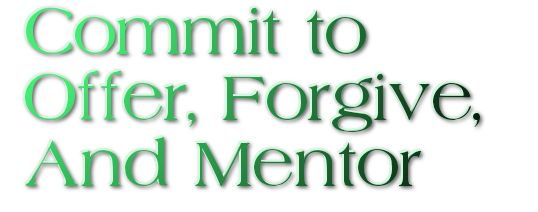 1) Commit to speaking to someone who is on your path that looks as if s/he could use a smile. Do this for one week, and decide if it belongs in your life. If speaking is difficult or not appropriate for you, offer an organic snack to some person as a gesture of human worth.
1) Commit to speaking to someone who is on your path that looks as if s/he could use a smile. Do this for one week, and decide if it belongs in your life. If speaking is difficult or not appropriate for you, offer an organic snack to some person as a gesture of human worth.
If speaking is easy, treat chosen recipient on your level, rather than as a person in need.
2) Commit to forgive one person per day, including yourself. That could mean during road rage, when someone insults you, or when someone steps on your toe while being self-absorbed.
3) Commit one month or two to mentor as a visiting big sister or brother. This way, you can try, out the waters, and your younger sister or brother will know you are only there for a short time. This is important, since, often, people who are recipients in the big sister/big brother program are usually used to their program siblings’ and even their true family members’ getting up and leaving without support.
![]()
If you wish to share your story, please hit reply in your email program to be contacted.
If you need habit help, go to http://warriorsofweight.com/warriorsofweight-consulting.
![]()
FEEDBACK
We value your feedback very much.
Please leave a comment below.
Please LIKE us on the website
and on Facebook.
You can also follow us on Twitter @warriorsoweight.
Thanks.
![]()
DIANE GOLD, PUBLISHER AND AUTHOR
Diane Gold, Founder of Warriors of Weight, Turning Habits Into Health, is a mentor in tai chi, kung fu and meditation, a music, fitness and stress expert, dedicated mom, studying plant-based nutrition, peaceful conflict resolution and habit replacement.
She looks at doing for others as part of the day. She says,
“When we think about it, the DNA we have is mostly the same as the DNA everyone else has. So, when we speak about kindness, we could think of it as caring for a family member. I know that’s a little out there. Yet, what’s really close to home is the fact that we enjoy benefiting ourselves. And showing kindness to others does just that.
“Whether we get personal satisfaction from giving or we look good in the society pages, we get something. And when we look closely, we also get an opportunity to balance out our blood pressure, our heart rate, our minds as we take that moment to give.
“So, take the leap. Be someone’s vitamin. We can’t be hurt by it. And we can save ourselves in the process, by actually making a change in our biology. There’s no time like the present and no time to wait.
“Do it now. It’s fun.
“Finally, let us all take good care of ourselves because we are so worth it!”
![]()







